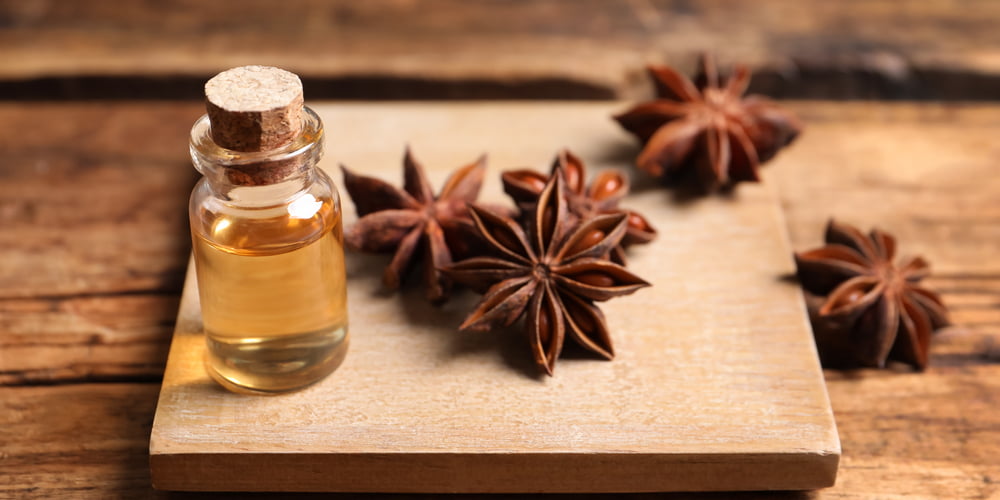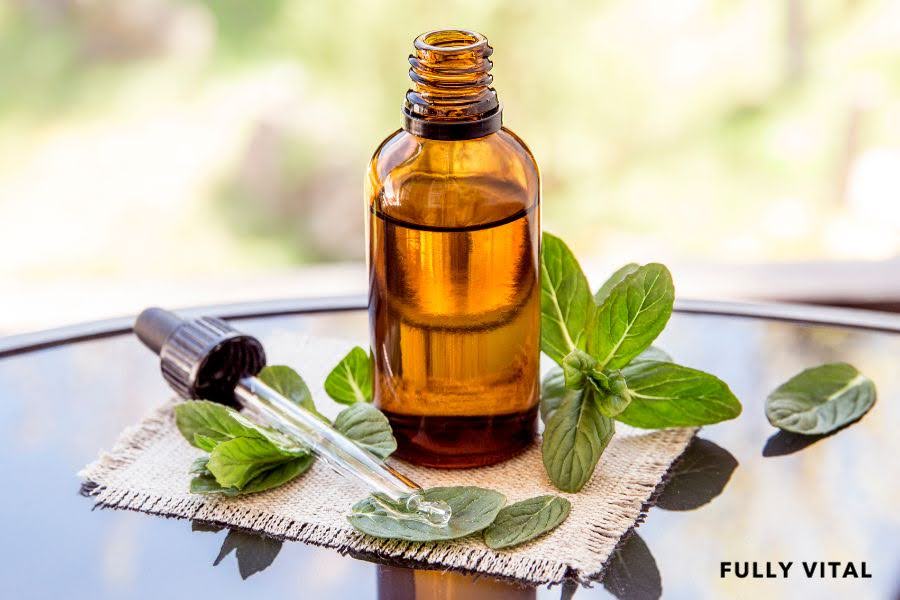
Castor Oil For Hair Growth: Benefits, Uses, Side-Effects
What is it | Castor oil for hair growth benefits | How to use it | Castor oil for skin | Castor oil for lashes | FAQ | Conclusion
Oils have been used in human history for a variety of benefits: from hair and skin to healing all kinds of ailments.
Historically, castor oil has been used as a laxative, in skincare routines and for wound healing.
Of late, its use for promoting hair health and growth has gained significant attention.
Many women swear by its ability to thicken eyebrow hair.
But can we use castor oil for hair growth on top of our heads? Let's examine the science.
What is Castor Oil?
Castor oil is a multi-purpose vegetable oil derived from the seeds of the Ricinus communis plant, commonly known as the castor oil plant.
The oil is a dense, pale yellow liquid with a distinct taste and odor.
The richness of castor oil lies in its composition, which is primarily constituted of ricinoleic acid, a monounsaturated fatty acid accounting for approximately 90% of the oil's fatty acid content.
Ricinoleic acid is known for its anti-inflammatory and anti-microbial properties, which may indirectly contribute to a healthier scalp and hair.
Besides, castor oil is rich in antioxidants, vitamin E, proteins, and omega-6 and omega-9 fatty acids, all of which are essential nutrients for hair growth and health.
It is these nutrients that potentially make castor oil an effective remedy for various hair and scalp issues.
Castor Oil: Benefits for Hair Growth
Castor oil's nourishing and moisturizing properties are backed by its rich fatty acid content.
These fatty acids can penetrate the hair shaft, reducing protein loss and helping to lock in moisture.
This not only makes the hair shinier and smoother but can also help in reducing hair breakage and split ends.
A key castor oil benefit for hair growth is its ability to enhance blood circulation to the scalp.
By massaging the oil onto the scalp, blood flow to the hair follicles is increased, potentially stimulating hair growth.
Scientific studies are lacking
Scientific research supporting the effectiveness of castor oil for hair growth, however, is limited.
While there's ample anecdotal evidence, empirical studies directly linking castor oil application to hair growth are scant.
That said, a study published in 2020 demonstrated the potential of ricinoleic acid, the main component of castor oil, in stimulating prostaglandin E2 receptors, which may indirectly support hair growth.
Furthermore, castor oil's rich nutritional profile can potentially strengthen hair follicles, providing them the nourishment required for healthy hair growth.
How to Use Castor Oil for Hair Growth
Using castor oil for hair growth involves more than just applying the oil to your hair.
Here are some ways to incorporate it into your hair care routine:
Direct application:
Massage a few drops of castor oil into your scalp using your fingertips.
This not only helps in improving blood circulation to the scalp but also ensures that the oil is well distributed.
Leave it on for a few hours or overnight before washing it off with a mild shampoo.
Castor oil hair mask:
You can make a nourishing hair mask by combining castor oil with other beneficial ingredients like coconut oil, honey, or aloe vera.
Apply this mixture to your hair and scalp, leave it on for an hour or two, and then wash it off.
This mask can help in providing deep conditioning to your hair.
Incorporating castor oil into your hair care routine:
You can also add castor oil to your regular hair products, such as shampoos, conditioners, or hair serums.
This will allow your hair to gain the benefits of castor oil without the need for a separate application.
Remember, while castor oil has potential benefits for hair growth, its effectiveness can vary from person to person.
It's best to experiment with different methods and frequency of use to see what works best for your hair type and condition.
Castor Oil for Skin
In addition to promoting hair health, castor oil has several potential benefits for skin.
Its anti-inflammatory and antimicrobial properties may help soothe irritated skin and combat bacterial infections.
Moreover, castor oil's hydrating properties make it an excellent natural moisturizer. Its fatty acids can penetrate the skin, providing hydration and helping to maintain the skin's moisture barrier.
A scientific study published in the International Journal of Toxicology in 2007 confirmed the safety of castor oil for skin applications.
As always, a patch test is recommended before full application to avoid potential allergic reactions.
Castor Oil for Lashes
Another popular use for castor oil is as a natural remedy for eyelash growth.
Similar to its potential benefits for hair, the fatty acids in castor oil may nourish and strengthen eyelashes, promoting their growth.
That's why many women use castor oil for hair growth on lashes and brows.
However, it's important to note that scientific evidence supporting castor oil's effectiveness for eyelash growth is lacking.
Furthermore, caution is necessary when applying it near the eyes to avoid irritation or damage.
Castor Oil For Hair: Side Effects
While castor oil is generally considered safe for topical use, it can cause side effects in some individuals.
A potential side effect is an allergic reaction, which can manifest as rashes, itching, or swelling on the scalp.
A patch test on the skin before full application can help identify if you have an allergy to castor oil.
Another important consideration is proper usage and dilution.
Pure castor oil is thick and can be difficult to remove from hair, potentially leading to hair breakage.
It's recommended to dilute castor oil with a lighter carrier oil like jojoba or sweet almond oil before application.
Furthermore, ingesting castor oil can cause serious side effects like diarrhea, nausea, and abdominal pain due to its strong laxative effects.
Therefore, it should always be kept out of reach of children.
Conclusion
With its rich composition of ricinoleic acid, antioxidants, vitamin E, and omega-6 and omega-9 fatty acids, castor oil offers potential benefits for healthy hair.
Its ability to nourish and moisturize the hair and scalp, enhance blood circulation, and strengthen hair follicles may promote healthier hair.
However, there is insufficient evidence to support castor oil for hair growth.
Its important to be aware of potential side effects, including allergic reactions, and to always dilute castor oil before use.
Castor Oil For Hair: FAQ
Does castor oil grow hair?
Castor oil, rich in nutrients like ricinoleic acid and omega-6 and omega-9 fatty acids, can potentially enhance scalp health and hair appearance, making hair look fuller and shinier.
However, while there's considerable anecdotal evidence, direct scientific proof establishing castor oil's effectiveness in stimulating new hair growth is limited.
Can I use castor oil daily in my hair?
Using castor oil daily in your hair isn't typically recommended due to its thickness, which can lead to product buildup and make hair difficult to manage.
A more common recommendation is using it once or twice a week, allowing the oil to soak into your scalp and hair overnight before washing it out.
However, the frequency may vary based on individual hair type and condition.
Can I leave castor oil in hair overnight?
Yes, you can leave castor oil in your hair overnight.
This allows for deeper penetration of the oil into your scalp and hair follicles, potentially enhancing its benefits.
After applying, cover your hair with a cap to prevent staining your bedding. In the morning, you may need to shampoo your hair multiple times to fully remove the oil due to its thickness.
Can I leave castor oil in my hair for a week?
It's typically not advised to leave castor oil on your scalp for more than a few hours as its thick consistency can lead to product buildup, potentially blocking your pores, exacerbating dandruff, and attracting dirt.
Additionally, this can create a persistently greasy, unclean sensation on your scalp.
How long does it take castor oil to work?
The timeline for seeing results from castor oil varies greatly from person to person, often depending on individual hair growth cycles, the extent of hair damage, and overall health.
Generally, with consistent application twice a week, noticeable changes in hair health, such as reduced breakage or increased shine, might be observed after a few months.
What are the disadvantages of castor oil for hair?
While castor oil has potential benefits for hair growth and luster, it may also present some disadvantages.
Its thick consistency can lead to product buildup on the scalp and make it challenging to wash out, potentially causing hair breakage.
Some individuals may experience allergic reactions, such as skin irritation, redness, or itching.
Overuse can lead to an imbalance in the scalp's natural oil production.
Does castor oil grow hair on bald spots?
While castor oil is often touted for its potential hair health benefits due to its rich nutrient composition, there's limited scientific evidence to support its effectiveness in regrowing hair on bald spots.
It may improve scalp health and make existing hair appear healthier and shinier.
However, it does not appear that castor oil grows hair on bald spots.
Can castor oil cause hair loss?
It's not believed that Castor oil can cause hair loss.
In fact, it's often used as a natural remedy to improve hair health.
However, improper use can potentially lead to problems.
For instance, applying too much due to its thick consistency can lead to buildup, making hair heavy and potentially causing breakage.
Also, some people may have an allergic reaction to castor oil, causing inflammation and potentially leading to hair loss.
Does castor oil thicken hair?
Castor oil is rich in nutrients that can potentially improve the health and appearance of your hair, making it look fuller and shinier.
However, the idea that it can actually thicken individual hair strands lacks robust scientific backing.
Castor oil might create a healthier environment by moisturizing the scalp, reducing breakage, and improving overall hair health.
In this way, castor oil could thicken hair.
How does castor oil compare to other oils?
We've discussed the use of rosemary oil, peppermint oil, lavender oil and batana oil in improving circulation and improving the health of hair.
Check out the articles above on further haircare inspiration.


